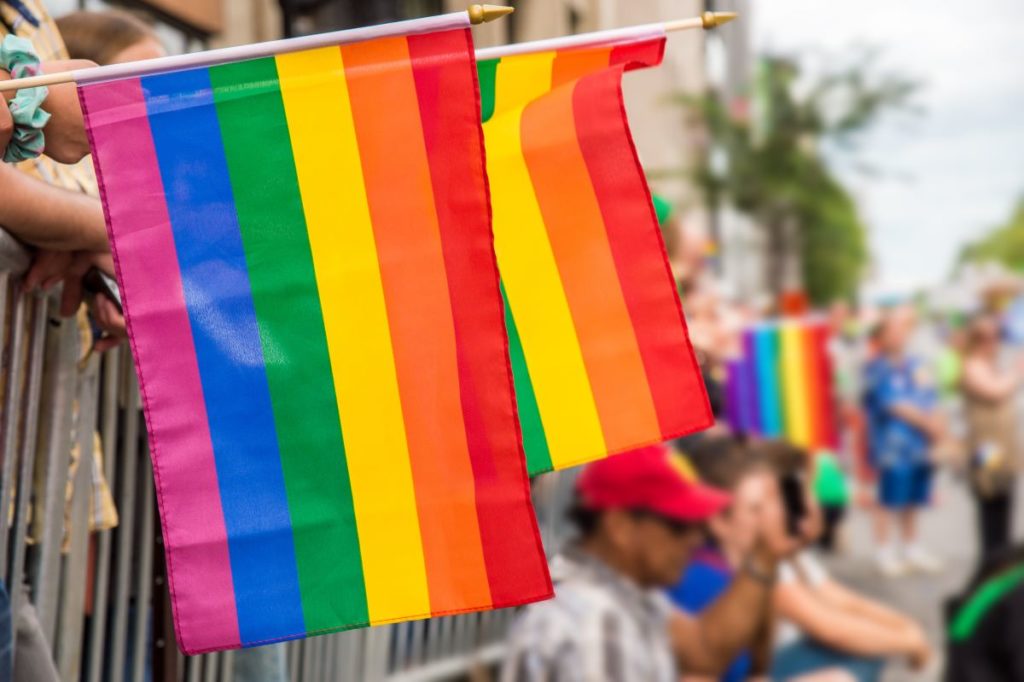Couples of the LGBT community often consider adoption and fostering as their first option to building a family. Foster care agencies are welcoming of LGBT parents since they are considered just as eligible as heterosexual parents. Sadly, LGBT parents still fall victim to discrimination and marginalization due to LGBT stereotypes and myths.
It is critical to address the issues — both founded and unfounded — unique to lesbian and gay adoptive or foster parents so that parents know their rights and social workers can re-examine their personal biases to make informed decisions. As a potential adoptive parent, it’s important to sort through these issues first before you decide if you want to send your child to an international preschool in Singapore, paint the nursery room yellow, or shop for the baby clothes.
By disproving myths and focusing on what really matters (i.e. a child finding a loving family, whether their adoptive parents are straight or not), LGBT adoptive families can receive the support they need to raise their child.
The following is a summary of concerns, questions and persistent myths about LGBT parents.
“What is Sexual Orientation? Does Sex Influence Your Orientation?”
One of the most common questions associated with parenting starts with identity. “What is sexual orientation?” “What is bigender? Does it happen when you’re in the womb?” and “Do you choose to become gay?” are some examples of questions associated with one’s identity.
The American Psychological Association (AMA) defines sexual orientation as a component of sexuality distinguished by romantic, emotional, affectionate, or sexual attraction to individuals of a certain gender. The other components of sexuality are biological sex (the sex you are born with), social sex role (adherence to cultural norms for masculine and feminine behaviors), and gender identity (the psychological sense of being male or female).
For most people, the realization of their sexual orientation occurs without any prior sexual experience. Orientation is different from behavior; the former focuses on the self-concept and innate feelings that cannot often be expressed in behavior.

“Will the Kids of LGBT Parents Be Harassed?”
Children of LGBT parents are, unfortunately, vulnerable to harassment and teasing, particularly as they reach middle school and high school, where signs of difference are grounds for exclusion.
Gay and lesbian parents are aware of the difficulties their children may face due to the prejudice for the community. Most parents, however, see it as an opportunity for a continuous discussion that will help the kids deal with the teasing.
Social workers and some LGBT couples considering adoption wonder if it’s in the best interest of the child to be raised by gay parents. Will their parentage affect the child’s self-esteem? Research, however, has found that although children of LGBT couples do experience teasing, their self-esteem levels are the same as children with heterosexual parents.
“Will Kids Raised by LGBT Couples End Up Gay?”
The bulk of research to date proves that children raised by LGBT couples are no more likely to become gay than children raised by straight parents. If heterosexual parenting does not ensure the kids will also be heterosexual, there’s no reason to conclude the kids of LGBT couples will also be gay.
While parents can influence the decisions of their children, a child’s sexual orientation remains their preference and personal decision.
“Are Children of LGBT Couples Brought Up in an ‘Immoral’ Environment?”
There are numerous disagreements regarding what counts as “moral“ and what is “immoral.“ For example, some people believe that raising kids without religion is immoral, but atheists are allowed to foster or adopt. Other people believe alcohol consumption is immoral, but this doesn’t disqualify individuals from their right of being considered as adoptive parents.
Therefore, is it considered “moral“ to leave children without families because some couples are considered as ‘immoral?’
“The Only Acceptable Home for Kids is One with a Mom and Dad Who are Married.”
The sexuality or marital status of the parents is different from an individual’s parenting abilities. Although many people believe a heterosexual environment is the only way to raise a child, studies show equally good outcomes for children of LGBT parents as children with married heterosexual parents.
Children in foster care are not looking for a specific type of mother or father. They want a loving home with loving parents.
Although society has become accepting of LGBT relationships and parenting, there remains a significant amount of resistance to same-sex relationships in some areas. But these issues should not stop you from giving a child a new home.
Make your adoption dream a reality by empowering yourself with information and seeking help from lawyers and adoption agencies.

